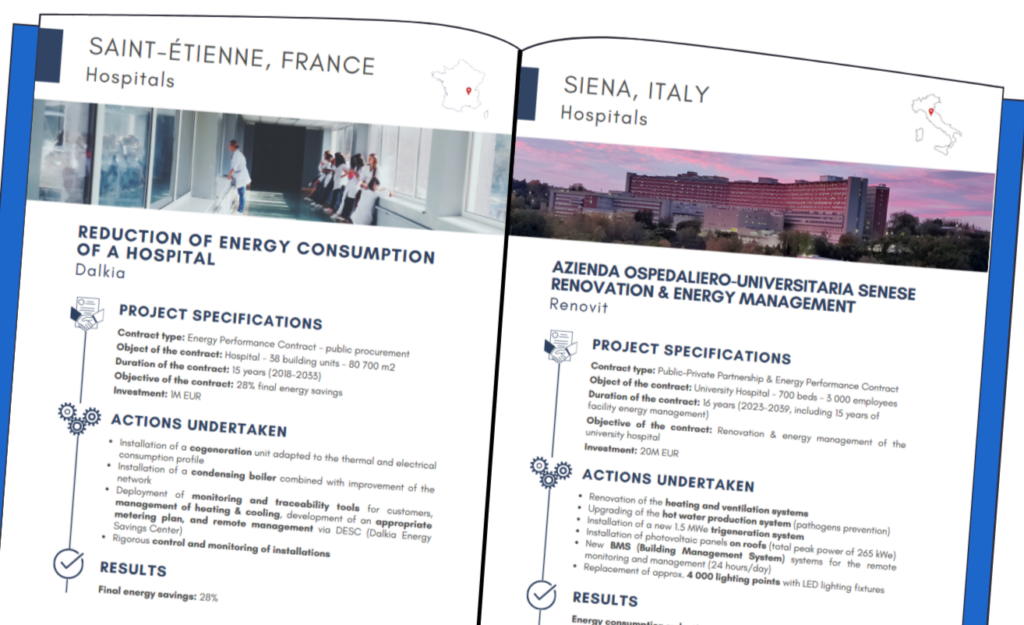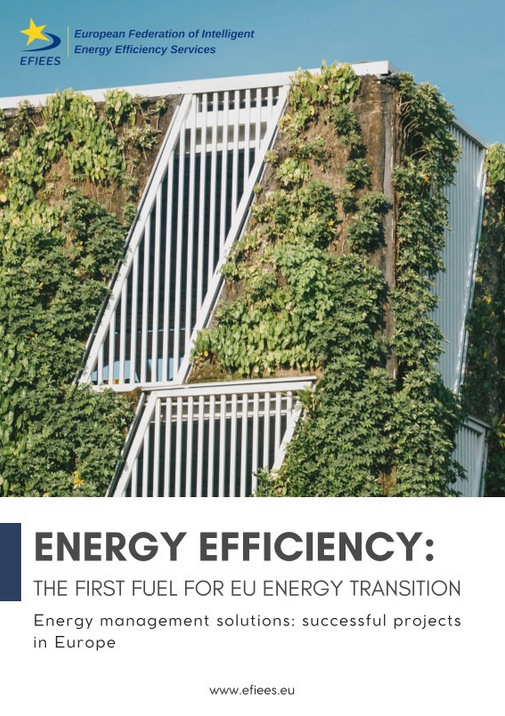…
Energy efficiency: the first fuel for EU energy transition
Energy management solutions: successful projects in Europe
We are pleased to present our brochure, Energy efficiency: the first fuel for EU energy transition, which showcases a range of successful energy management projects led by EFIEES’ members across Europe. Through their projects, you get to better know our members, Energy Service Companies (ESCOs) and their national associations, who work tirelessly to drive the EU’s energy transition through reduced emissions, cost savings, and increased efficiency.
At EFIEES, we believe that energy efficiency is the backbone of a sustainable future, with our members achieving lasting Energy and CO2 saving through Energy Performance Contracts (EnPCs) and district heating and cooling (DHC) networks. Our members implement EnPCs to guarantee energy savings by managing all project phases, enabling clients to meet sustainability targets affordably, while DHC networks provide centralised, efficient heating and cooling solutions by harnessing local renewable sources like biomass, geothermal, and industrial waste heat for lower emissions and greater energy resilience across Europe.

..
Inside the brochure: key projects and achievements
This brochure highlights some best practices undertaken by EFIEES’ members across multiple sectors:
- Public buildings: In Florence, Italy, a municipal renovation project successfully reduced thermal energy consumption by 30%, integrating renewable energy sources like photovoltaic panels, and saving 50,000 tonnes of CO2. Another example in France includes a military base retrofit that achieved a 21% reduction in final energy consumption, combining technical enhancements with user education.
- Schools: Initiatives like the Romania Eficientă project, transformed public schools into Near Zero Emission Buildings (nZEB) and reduced energy costs by approximately 30%. This project also fosters actions to raise energy awareness among students, and staff.
- Hospitals: At UZ Ghent Hospital in Belgium, energy management efforts optimised gas, steam, electricity, and water usage, providing a more sustainable and comfortable environment for patients and staff.
- Housing: In France, a social housing project was enhanced by integrating a district heating network powered by local renewable biomass energy. Our member’s actions not only cut energy costs for residents but also resulted in annual CO2 savings of over 4,300 tonnes.
- Industry and grids: The brochure also explores energy efficiency for industry sector, such as for the Steelanol plant in Belgium, where EFIEES’ member transformed flue gases from steel production into bioethanol, reducing greenhouse gas emissions equivalent to removing 60,000 cars from the road each year.
EFIEES’ members work across multiple sectors, proving that energy efficiency is both versatile and essential to Europe’s energy future. For further details, explore the brochure and learn how EFIEES is making energy efficiency a fundamental part of the EU’s transition towards a sustainable energy future.

